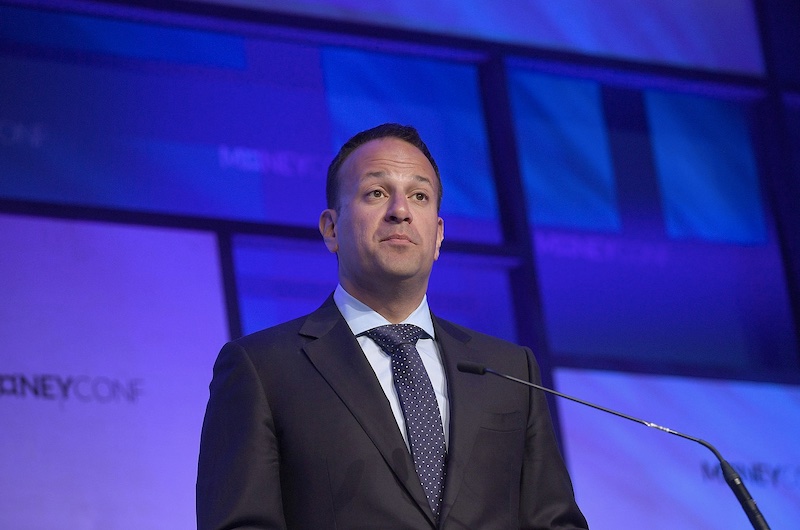Arkansas governor asks religious freedom bill be recalled amid growing outcry

The firestorm over Indiana’s religious freedom law spilled into Arkansas on Wednesday as the state’s governor called on lawmakers to amend similar legislation pending in the state that could be used to justify LGBT discrimination.
Arkansas Gov. Asa Hutchinson (R) asked legislators to recall a religious freedom bill sent to his desk one day prior so it can be amended to mirror the federal Religious Freedom Restoration Act, which is less broad. Hutchinson, who previously promised to sign the bill, said during a Wednesday press conference that his son, Seth, signed a petition urging him to veto the bill.
“The issue has become divisive because our nation remains split on how to balance the diversity of our culture with the traditions and firmly held religious convictions,” Hutchinson said. “The issue has become divisive because our nation remains split on how to balance the diversity of our culture with the traditions and firmly held religious convictions.”
The announcement by Hutchinson comes as Indiana faces national boycott over the signing of a religious freedom bill last week by Gov. Mike Pence (R). On Tuesday, Pence urged lawmakers to send a “fix” to his desk by the end of this week making clear the Indiana law does not permit businesses to discriminate against gays and lesbians. Indiana has faced criticism from across corporate America for the law. Connecticut, New York and D.C. have all enacted travel bans banning nonessential taxpayer-funded travel to Indiana.
Shortly after lawmakers sent the bill to Hutchinson’s desk last night, Walmart CEO Doug McMillon called on Hutchinson to veto the bill, stating it “threatens to undermine the spirit of inclusion present throughout the state of Arkansas.”
White House press secretary Josh Earnest, who has repeatedly criticized the Indiana law, said Wednesday Hutchinson’s announcement was an indication of the effect national outcry is having on states considering such legislation, which has largely been viewed as backlash to the spread of marriage equality.
“I do think that in the mind of the President, the thought that we would have state legislatures in the 21st century in the United States of America passing laws that would use religion to try to justify discriminating against people because of who they love is unthinkable,” Earnest said.
And the pressure from corporate America continued on Wednesday as well, with more than 70 tech industry leaders signing a joint statement calling on “all legislatures to add sexual orientation and gender identity as protected classes to their civil rights laws and to explicitly forbid discrimination or denial of services to anyone.”
Organized by Max Levchin, CEO of Affirm, the statement continued, “Anything less will only serve to place barriers between people, create hurdles to creativity and inclusion, and smother the kind of open and transparent society that is necessary to create the jobs of the future.”
Read the full statement here:
The values of diversity, fairness and equality are central to our industry. These values fuel creativity and inspiration, and those in turn make the U.S. technology sector the most admired in the world today.
We believe it is critically important to speak out about proposed bills and existing laws that would put the rights of minorities at risk. The transparent and open economy of the future depends on it, and the values of this great nation are at stake.
Religious freedom, inclusion, and diversity can co-exist and everyone including LGBT people and people of faith should be protected under their states’ civil rights laws. No person should have to fear losing their job or be denied service or housing because of who they are or whom they love.
However, right now those values are being called into question in states across the country. In more than twenty states, legislatures are considering legislation that could empower individuals or businesses to discriminate against LGBT people by denying them service if it they felt it violated their religious beliefs.
To ensure no one faces discrimination and ensure everyone preserves their right to live out their faith, we call on all legislatures to add sexual orientation and gender identity as protected classes to their civil rights laws and to explicitly forbid discrimination or denial of services to anyone.
Anything less will only serve to place barriers between people, create hurdles to creativity and inclusion, and smother the kind of open and transparent society that is necessary to create the jobs of the future. Discrimination is bad for business and that’s why we’ve taken the time to join this joint statement.
Sincerely,
Max Levchin, CEO, Affirm
Mark Pincus, Chairman, Zynga
Jeremy Stoppelman, CEO, Yelp
Marc Benioff, CEO, SalesForce
Jack Dorsey, CEO, Square
Dick Costolo, CEO, Twitter
Joe Green, CEO, Lyft
Brian Chesky, CEO, AirBnB
Joe Gebbia, CPO, AirBnB
Nathan Blecharczyk, CTO, AirBnB
Ron Conway, CEO, Axon JuriMed Group LLC
John Donahoe, CEO, Ebay
Paul Graham, CoFounder, YCombinator
Rich Barton, Chairman, Zillow Group
Chad Hurley, CEO, Mixbit
Adora Cheung, CEO, Homejoy
Phil Libin, CEO, Evernote
Trevor Traina, CEO, IfOnly
Nirav Tolia, CEO, NextDoor
Dion Lim, CEO, NextLesson
Bret Taylor, CEO, Quip
Joe Lonsdale, CEO, Formation 8
Thomas Layton, Chairman, Elance-odesk
Fabio Rosati, CEO, Elance-odesk
Dave Morin, CEO, Path
Mark Goldstein, Chairman, BackOps
Kevin Rose, CEO, North Technologies
Yves Behar, CCO, Jawbone
Padmasree Warrior, CTSO, Cisco Systems
Tony Conrad, CEO, about.me
Sunil Paul, CEO, Sidecar
Michael Moritz, Chairman, Sequoia Capital
Dan Schulman, President, PayPal
Devin Wenig, President, eBay Marketplaces
Robert Hohman, CEO, Glassdoor
Laurene Powell Jobs, Founder and Chair, Emerson Collective
Mohan Warrior, CEO, Alphalight
David Spector, CIO, Penny Mac
Shervin Pishevar, CoFounder, Sherpa Ventures
David Karp, CEO, Tumblr
Reid Hoffman, Chairman, Linkedin
Kevin Ryan, Chairman, Gilt
Michael Birch, CoFounder, Bebo
Hosain Rahman, CEO, Jawbone
John Zimmer, President, Lyft
Bill Ready, CEO, Braintree
Jon Oringer, CEO, Shutterstock Images
Drew Houston, CEO, Dropbox
Bijan Sabet, General Partner, Spark Capital
Douglas Merrill, CEO, ZestFinance
Tom Sheahan, CEO, RedOxygen
Brian Samelson, CEO, eMaint.com
Jeff Weiner, CEO, LinkedIn
Daniel Lurie, CEO, Tipping Point Community
Aaron Levie, CEO, Box
Jeff Weiner, CEO, Linkedin
Gary Moore, President & COO, Cisco
Travis Katz, CEO, Gogobot
Joe Davis, CEO, Webtrends
Satya Nadella, CEO, Microsoft
Brad Smith, Executive Vice President and General Counsel, Microsoft
Josh Kopelman, Partner, First Round Capital
Rob Glaser, CEO, Realnetworks
Brian Krzanich, CEO, Intel
Jason Goldberg, CEO, Hem
Evan Reece, CEO, Liftopia
Dave Gilboa, CoFounder, Warby Parker
Neil Blumenthal, CoFounder, Warby Parker
Sean Parker, Chairman, Airtime
Reed Hastings, CEO, Netflix
Charles Phillips, CEO, Infor
Editor’s Note: This post has been updated to include the current list of tech industry leaders who have signed the joint statement.
Support Metro Weekly’s Journalism
These are challenging times for news organizations. And yet it’s crucial we stay active and provide vital resources and information to both our local readers and the world. So won’t you please take a moment and consider supporting Metro Weekly with a membership? For as little as $5 a month, you can help ensure Metro Weekly magazine and MetroWeekly.com remain free, viable resources as we provide the best, most diverse, culturally-resonant LGBTQ coverage in both the D.C. region and around the world. Memberships come with exclusive perks and discounts, your own personal digital delivery of each week’s magazine (and an archive), access to our Member's Lounge when it launches this fall, and exclusive members-only items like Metro Weekly Membership Mugs and Tote Bags! Check out all our membership levels here and please join us today!























